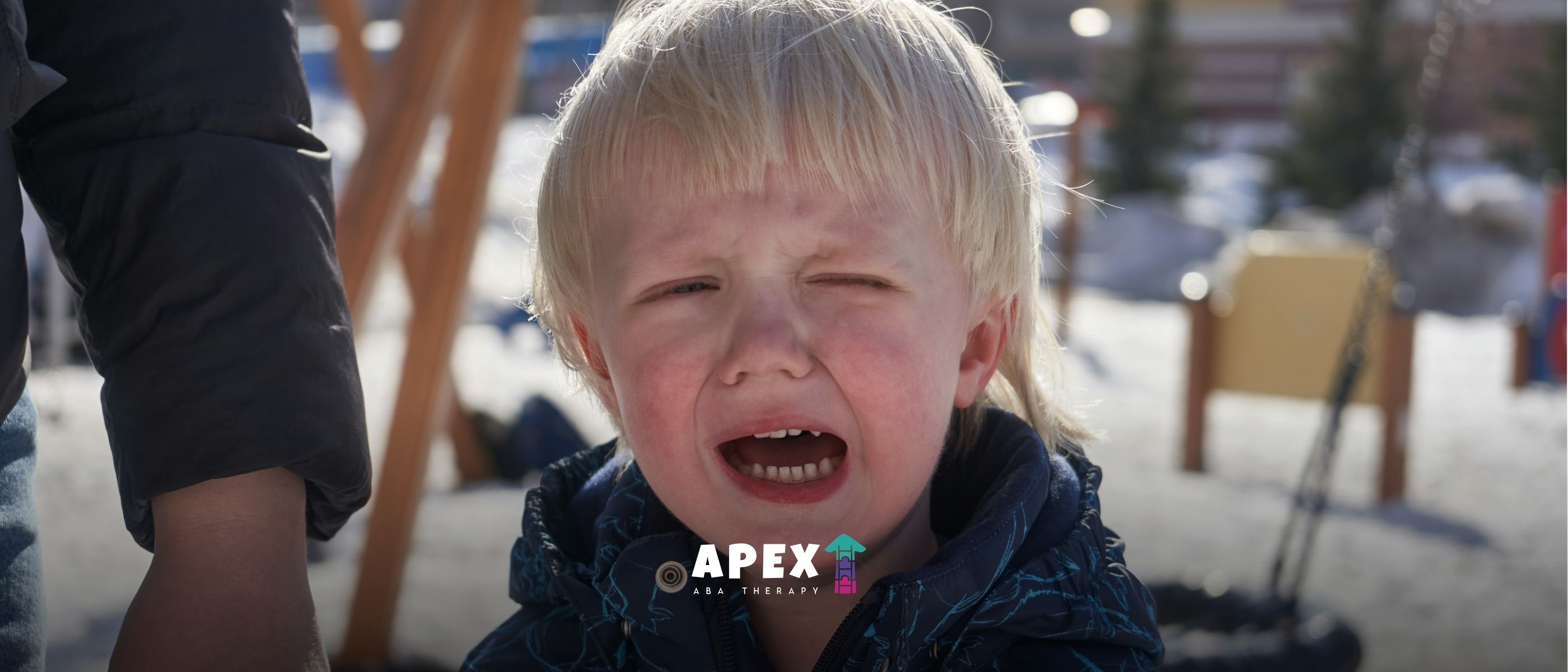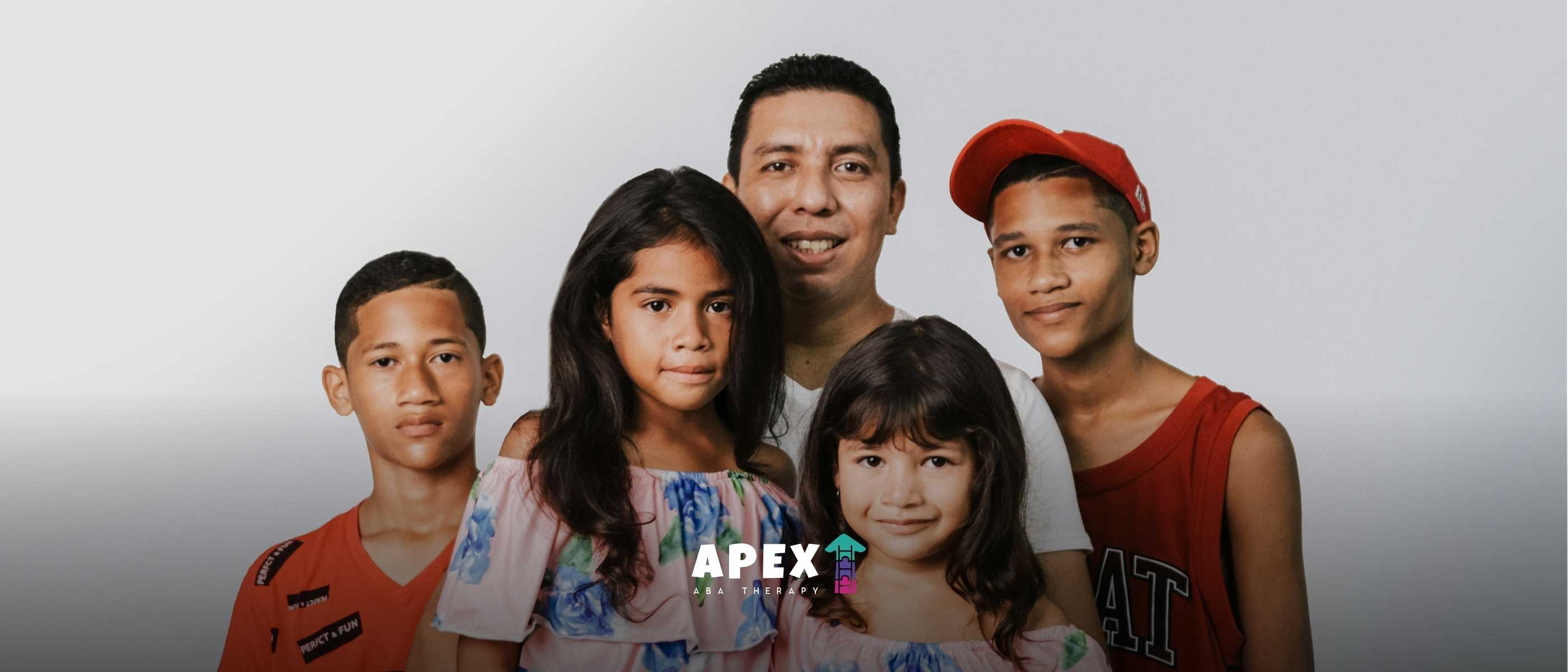Speech Delay vs. Autism
ncover personal stories, insights, and the nuances that distinguish these two experiences. Join us in this empathetic exploration, shedding light on the challenges and triumphs faced by individuals navigating speech delays and autism.
.jpg)
Speech Delay vs. Autism
Understanding Speech Delay and Autism
When it comes to speech delay vs autism, it's important to understand the distinction between the two. While both conditions can impact speech and communication, they are separate entities with their own unique characteristics.

What is Speech Delay?
Speech delay refers to a condition in which a child's speech and language development are slower than expected for their age. Children with speech delay may exhibit difficulty pronouncing words, forming sentences, or understanding and using language effectively. Speech delay can have various causes, such as hearing loss, developmental disorders, or environmental factors.
Some common signs of speech delay include:
- Limited vocabulary for their age.
- Difficulty combining words to form sentences.
- Pronunciation errors that are not age-appropriate.
- Trouble expressing thoughts or needs through speech.
- Difficulty understanding and following verbal instructions.
If you suspect speech delay in your child, seeking a professional evaluation is crucial to determine the underlying cause and appropriate intervention. Speech therapy is often recommended to help improve speech and language skills.

What is Autism?
Autism, or autism spectrum disorder (ASD), is a neurodevelopmental condition that affects social interaction, communication, and behavior. While speech and language difficulties are common in individuals with autism, not all individuals with autism have speech delay, and not all individuals with speech delay have autism.
Autism is a complex condition with a wide range of symptoms and severity. Some common characteristics of autism include:
- Challenges in social interactions, such as difficulty making eye contact or understanding social cues.
- Communication difficulties, which can range from delayed speech development to difficulty engaging in conversations.
- Repetitive behaviors or restricted interests, such as repetitive movements or intense focus on specific topics or objects.
It's important to seek a professional evaluation for a comprehensive assessment if you suspect autism in yourself or a loved one. Early intervention is key in providing appropriate support and therapies.
Understanding the differences between speech delay and autism is crucial in order to provide the right support and intervention for individuals.
Differentiating Speech Delay and Autism
Understanding the difference between speech delay and autism is essential for early identification and appropriate intervention. While both can involve difficulties in speech and language development, there are distinct characteristics that help differentiate between the two.
Speech Delay Characteristics
Speech delay refers to a situation where a child's speech and language skills develop at a slower pace compared to their peers. Some common characteristics of speech delay include:
- Late Speech Development: Children with speech delay may have a limited vocabulary and struggle to form sentences appropriate for their age.
- Articulation Challenges: Pronunciation difficulties, such as substituting or omitting sounds, may be present.
- Difficulty with Expressive Language: Children may have trouble expressing their thoughts and ideas verbally, finding the right words, or using grammatically correct sentences.
- Understanding Language: While receptive language skills (understanding spoken language) are generally age-appropriate in children with speech delay, they may struggle with complex or abstract language.
Speech delay can have various causes, including hearing loss, intellectual disability, or environmental factors. Seeking a professional evaluation is crucial to accurately determine the underlying cause and provide appropriate support.
Autism Characteristics
Autism, also known as Autism Spectrum Disorder (ASD), is a developmental disorder that affects social interaction, communication, and behavior. While speech delay can be a characteristic of autism, there are additional features that help distinguish it from speech delay alone. Some characteristics of autism include:
- Social Challenges: Difficulty with social interactions, such as making eye contact, sharing emotions, or understanding social cues.
- Communication Difficulties: Individuals with autism may struggle with both expressive and receptive language skills. They may have difficulties initiating and maintaining conversations, understanding non-literal language, or engaging in imaginative play.
- Repetitive Behaviors and Interests: Repetitive movements (e.g., hand flapping, rocking) and intense, narrow interests or routines are common in individuals with autism.
- Sensory Sensitivities: Heightened or reduced sensitivity to sensory input (e.g., sound, touch, taste) may be present, leading to behavioral responses.
It's important to remember that autism is a spectrum disorder, and individuals with autism can display a wide range of abilities and challenges. Seeking a professional evaluation is critical for an accurate diagnosis and to access appropriate interventions and therapies.
Understanding the characteristics of both speech delay and autism can help caregivers and professionals identify the specific needs of individuals and tailor interventions accordingly. Early intervention is key to supporting language development and overall growth. Speech therapy is often recommended for speech delay, while behavioral interventions, such as applied behavior analysis (ABA), are commonly used for autism.
Overlapping Symptoms
When it comes to differentiating speech delay and autism, there are certain symptoms that can overlap between the two. It's important to understand these overlapping characteristics to gain a better understanding of the challenges individuals may face. Two significant areas of overlap are speech and language challenges and social and communication difficulties.
Speech and Language Challenges
Both speech delay and autism can involve difficulties in speech and language development. Individuals with speech delay may exhibit delays in reaching typical language milestones, such as babbling, first words, and sentence formation. They may struggle with articulation, pronunciation, and expressive language skills.
Similarly, individuals with autism may experience speech and language challenges. They may have delayed speech development or completely lack speech, relying on alternative forms of communication, such as sign language or augmentative and alternative communication (AAC) devices. Some individuals with autism may also exhibit echolalia, where they repeat words or phrases without understanding their meaning.
To address speech and language challenges, individuals with speech delay can benefit from speech therapy, which focuses on improving articulation, vocabulary, and overall language skills. For individuals with autism, speech therapy can also be beneficial in targeting communication goals and supporting the development of functional language.
Social and Communication Difficulties
Difficulties in social interaction and communication are key features of both speech delay and autism. Individuals with speech delay may struggle with engaging in conversations, understanding social cues, and maintaining eye contact. They may find it challenging to initiate and sustain interactions with others.
On the other hand, individuals with autism often experience significant social and communication difficulties. They may have difficulty understanding and using nonverbal communication, such as facial expressions and body language. They may struggle to engage in reciprocal conversations and have difficulty understanding social norms and expectations.
While speech delay may primarily impact speech and language development, autism involves a broader range of social and communication difficulties. Behavioral interventions, such as Applied Behavior Analysis (ABA), can be helpful in addressing these challenges for individuals with autism. These interventions focus on teaching social skills, improving communication, and promoting adaptive behaviors.
Understanding the overlapping symptoms between speech delay and autism is crucial for seeking appropriate evaluation and support. If you're unsure whether speech delay or autism may be a factor, it's important to consult with professionals who specialize in diagnosing and treating these conditions. Early intervention is key in providing the necessary support and interventions to help individuals reach their full potential.
Seeking Professional Evaluation
When faced with concerns about speech development, it is essential to seek professional evaluation to determine whether it is a speech delay or autism. Early identification and intervention can make a significant difference in a person's overall development and well-being.
Importance of Early Intervention
Early intervention is crucial for individuals with speech delay or autism. Identifying and addressing speech and communication challenges at an early stage can help improve outcomes and provide necessary support. Early intervention services typically involve a multidisciplinary approach, including speech therapists, occupational therapists, and behavioral therapists, among others.
By starting intervention early, individuals with speech delay or autism can receive the necessary tools and strategies to enhance their communication skills and overall development. Early intervention services are designed to address specific needs and provide tailored support to promote language acquisition, social interaction, and other essential skills.
Diagnostic Process for Speech Delay and Autism
The diagnostic process for speech delay and autism involves a comprehensive assessment conducted by qualified professionals, such as speech-language pathologists, developmental pediatricians, and psychologists. This process typically includes the following steps:
- Initial Screening: A preliminary screening is conducted to identify any red flags or concerns related to speech and language development. This screening may involve questionnaires or observations.
- Comprehensive Evaluation: If the initial screening indicates potential speech delay or autism, a comprehensive evaluation is conducted. This evaluation may include assessments of speech and language skills, cognitive abilities, social communication, and behavioral observations. The evaluation aims to gather a comprehensive understanding of the individual's strengths and challenges.
- Medical Evaluation: In some cases, a medical evaluation may be recommended to rule out any underlying medical conditions or genetic factors that could contribute to speech delay or autism.
- Collaborative Team Approach: The diagnostic process often involves a collaborative team approach, where professionals from different disciplines collaborate to gather information and provide a comprehensive evaluation. This multidisciplinary approach ensures a holistic assessment and helps determine the best course of action for intervention and support.
The diagnostic process for speech delay and autism may vary depending on the individual's age, symptoms, and the professionals involved. If you suspect speech delay or autism in yourself or your child, it is recommended to consult with healthcare professionals who specialize in speech and developmental disorders. They can guide you through the evaluation process and provide appropriate recommendations for treatment and support.
Remember, seeking professional evaluation is the first step towards understanding and addressing the unique needs of individuals with speech delay or autism. With early intervention and the right support, individuals can make significant progress in their speech and communication skills, fostering their overall development and quality of life.
Treatment and Support
When it comes to supporting individuals with speech delay or autism, various treatment options are available to address their unique needs. Let's explore two key approaches: speech therapy for speech delay and behavioral interventions for autism.
Speech Therapy for Speech Delay
Speech therapy is a vital intervention for individuals experiencing speech delay. Through targeted techniques and exercises, speech therapists work with individuals to improve their communication skills and speech production. The goals of speech therapy may include enhancing articulation, expanding vocabulary, improving sentence structure, and bolstering overall communication fluency.
During speech therapy sessions, therapists employ a combination of techniques, such as articulation therapy, phonological therapy, and language stimulation, tailored to the individual's specific needs. These techniques help individuals develop and strengthen their speech and language abilities, enabling them to effectively express themselves and engage in meaningful interactions.
Behavioral Interventions for Autism
For individuals with autism, behavioral interventions play a critical role in addressing various challenges, including speech and communication difficulties. These evidence-based interventions focus on promoting positive behaviors, improving social skills, and enhancing overall quality of life.
Applied Behavior Analysis (ABA) is a widely recognized approach used in behavioral interventions for autism. ABA involves breaking down complex skills into smaller, manageable steps and using positive reinforcement to encourage desired behaviors. ABA can be particularly effective in targeting speech and language development, promoting functional communication, and reducing problem behaviors.
In addition to ABA, other behavioral interventions, such as social skills training, picture exchange communication system (PECS), and augmentative and alternative communication (AAC), may also be utilized to support individuals with autism in developing their communication abilities.
Each individual with autism is unique, and treatment plans should be tailored to their specific needs and strengths. Collaborating with a multidisciplinary team, including speech therapists, behavior analysts, and educators, can help ensure a comprehensive and individualized approach.
By utilizing speech therapy for speech delay and implementing behavioral interventions for autism, individuals can receive the necessary support to enhance their communication skills and overall well-being. It's crucial to seek professional guidance and work closely with experts to develop a personalized treatment plan that best meets the unique needs of each individual.
Supporting Individuals with Speech Delay or Autism
When supporting individuals with speech delay or autism, creating a supportive environment is essential. It's important to provide a nurturing and inclusive space that encourages their communication and social development. Additionally, accessing appropriate resources and support networks can greatly assist in their progress and well-being.
Creating a Supportive Environment
Creating a supportive environment involves understanding the unique needs and challenges of individuals with speech delay or autism. Here are some strategies to consider:
- Effective Communication: Use clear and concise language, adapt your communication style to their needs, and provide visual supports such as pictures or visual schedules to aid comprehension.
- Structured Routine: Establishing a predictable routine can help individuals with speech delay or autism feel more secure and provide a sense of order and stability.
- Sensory Considerations: Be mindful of sensory sensitivities and create a sensory-friendly environment by minimizing noise, providing calming spaces, and considering the individual's sensory preferences.
- Visual Supports: Visual aids, such as visual schedules or social stories, can assist individuals with understanding expectations, routines, and social situations.
- Positive Reinforcement: Encourage and reinforce their efforts and achievements. Use praise, rewards, or other positive reinforcement strategies to motivate and build their confidence.
Resources and Support Networks
Accessing appropriate resources and support networks is vital for individuals with speech delay or autism and their caregivers. Here are some valuable resources and networks to consider:
- Speech Therapy: Speech therapy plays a crucial role in supporting individuals with speech delay or autism. It focuses on improving communication skills, speech production, language development, and social interaction.
- Early Intervention Programs: Early intervention programs provide specialized services and support for children with developmental delays, including speech delay or autism. These programs aim to address delays and promote optimal development during the crucial early years.
- Support Groups: Joining support groups or online communities can provide a valuable network of individuals who share similar experiences and challenges. These groups offer emotional support, information sharing, and a sense of belonging.
- Educational Resources: There are numerous books, websites, and online resources available that provide information, strategies, and practical tips for supporting individuals with speech delay or autism. These resources can offer guidance on various aspects, including language delay vs. autism and speech delay treatment.
- Professional Guidance: Consulting professionals, such as speech-language pathologists or behavioral therapists, can provide individualized guidance and support tailored to the specific needs of individuals with speech delay or autism. They can offer strategies, therapy, and interventions to enhance communication skills and overall development.
Remember, every individual with speech delay or autism is unique, and their support needs may vary. It's important to seek professional advice and tailor the support approach to the individual's specific strengths, challenges, and goals. By creating a supportive environment and accessing appropriate resources, you can help individuals with speech delay or autism thrive and reach their full potential.
Summary
The distinction between speech delay and autism is a deeply human exploration, where personal stories and unique journeys take center stage. It's not just about categorizations; it's about understanding the individual challenges and triumphs faced by those navigating speech delays and autism.
As we conclude this exploration, let's approach the topic with empathy, celebrating the diverse ways individuals find their voices. It's a journey of understanding and supporting each person's unique path, contributing to the rich tapestry of human communication and connection.
Sources
Frequently Asked Questions
.jpg)
Autism And Bed Wetting: Unlocking Solutions
Explore the connection between autism and bedwetting and find practical insights and solutions for parents and caregivers. Discover how understanding and support can make a difference in managing this common challenge for children and individuals on the autism spectrum.

Proven Examples of Smart Goals for Students with Autism
Unlock the potential of students with autism through proven examples of SMART goals. Set them up for success!
.jpg)
What is the Sensory Processing Disorder ICD-10 Code?
If you or someone you know has been diagnosed with Sensory Processing Disorder (SPD), you may have heard of the ICD-10 code. In this article, we'll explain what the SPD ICD-10 code is, what it means, and why it's important.

Understanding Vestibular Stimming in Autism
Demystifying vestibular stimming in autism: Understand the impact, strategies, and support for individuals. Uncover the power of self-regulation through stimming.

Do Amish Kids Get Autism?
Explore the prevalence of autism in Amish children and uncover the factors that may contribute to this phenomenon. Delve into the unique characteristics of Amish communities and their impact on autism rates.

Breaking Barriers: Free Sensory Toys for Autism That Make a Difference
Discover life-changing free sensory toys for autism! Unlock the power of sensory play for children with autism.

Famous People Thriving with Autism or Aspergers Syndrome
Discover the extraordinary journeys of famous people thriving with autism and Asperger's syndrome. Unveil the inspiring stories of icons who break stereotypes.

IEP Goals for Autism: Ultimate Guide
Unlock the potential: Constructing meaningful IEP goals for autism to support your child's growth and development. Discover strategies and examples!

Young Celebrities with Autism
Discover inspiring young celebrities with autism and their journeys in entertainment and advocacy.
.jpg)
Autism Hand Posturing: Causes, Types, and Management
Autism hand posturing refers to repetitive and often purposeless movements or postures of the hands and fingers seen in individuals with autism. These movements range from simple hand flapping to more complex finger twisting and tapping.

Distinguishing ADHD vs Autism Stimming
ADHD stimming vs autism stimming: Discover the motivations and characteristics behind these behaviors in individuals.

Addressing Rigid Thinking in Autism
Unlocking flexibility in autism! Discover strategies, therapy, and tools to address rigid thinking for a brighter future.

DSM 6 Release Date Revealed
Unlock the future with DSM-6! Discover the release date and anticipated changes in the mental health landscape.

Why Do Autistic People Rock?
Uncover insights with empathy, exploring the diverse ways rocking serves as a coping mechanism and sensory regulation for individuals on the autism spectrum. Join us in celebrating the beauty of neurodiversity, fostering understanding and appreciation for this distinctive aspect of autistic experience.

Signs Your Toddler Is Not Autistic
Discover reassuring signs that your toddler may not be autistic in this human-centered guide. Explore the joy of your child's unique developmental journey, celebrating their social engagement and communication skills.
.jpg)
Facial Features & Physical Characteristics Of Autism
Some researchers believe that these physical characteristics are related to the underlying neurological differences in individuals with autism.

The Three Main Causes of Autism: Exploring Genetics, Environment, and Brain Differences
Autism is influenced by genetics, environmental factors, and brain differences. Learn how these three causes contribute to the development of the condition.

What are the Common Behaviors of Autism?
Autism behaviors can vary widely. Learn about the most common traits, from social difficulties to sensory sensitivities, and how ABA therapy can support progress.

What Age is Too Late for ABA Therapy?
It’s never too late to start ABA therapy. Discover how children, teens, and adults can still make meaningful progress with personalized ABA support.

Is In-Home ABA the Right Fit for Your Child? Here’s What You Need to Know
In-home ABA therapy offers a tailored approach to support your child’s development. Learn how it can improve key skills like communication, social interaction, and more.

How Families Can Make ABA Therapy a Positive and Successful Experience
Learn how families can ensure ABA therapy is a positive, successful experience. Discover tips for involvement, consistency, and support to make ABA effective.

Can a Child Have Autism and Still Talk Normally?
Can a Child Have Autism and Still Talk Normally?

What Are the Red Flags for Autism in a 2-Year-Old?
Autism Red Flags in 2-Year-Old Children | Apex ABA

Is Autism a Lifelong Condition?
Is Autism a Lifelong Condition? Understanding The Journey

Best Age to Start ABA Therapy & What Parents Should Know
Best Age to Begin ABA Therapy for Children | Apex ABA

What’s the Difference Between High-Functioning Autism and Asperger’s?
Difference Between High-Functioning Autism and Asperger’s

ABA Therapy Enhancing Social Skills: A Key to Improved Communication and Interaction for Children with Autism
How ABA Therapy Helps Children Build Social Skills

Misconceptions About ABA Therapy: Clearing Up the Myths
Common Misconceptions About ABA Therapy | Apex ABA

What Does It Mean to Be “On the Spectrum”?
What Does It Mean to Be on the Autism Spectrum? | Apex ABA

Understanding the Power of Functional Behavior Assessment ABA
Effective ABA Techniques for Behavioral Intervention

Discover How ABA Helps ADHD in Your Child’s Life
How ABA Therapy Helps Children with ADHD | Apex ABA

Life-Changing ABA Therapy Case Studies You Need to Know
Real Success Stories from ABA Therapy Journeys | Apex ABA

Can Children “Outgrow” Autism?
Can Children Outgrow Autism? Understanding the Facts

Is Autism a Mental Illness or a Developmental Disorder?
Mental Illness or Developmental Disorder Explained

Is Autism More Common in Boys Than Girls?
Autism in Boys vs Girls: What the Research Reveals

What is the Difference Between Autism and Sensory Processing Disorder?
Autism vs Sensory Processing Disorder Differences | Apex ABA

What's the Difference Between Autism and Speech Delay?
Autism vs Speech Delay & Key Differences Explained | Apex

ABA Therapy in North Carolina: A Complete Guide for Families
Learn everything about ABA therapy in North Carolina, including services, costs, insurance coverage, and how to choose the best ABA provider in North Carolina.

ABA Therapy vs Preschool: Making the Right Choice Explained
Learn the key differences between ABA therapy and preschool to help you choose the best option for supporting your child’s early learning and development.

Which Personality Type Is Most Likely to Be Autistic?
Which Personality Type Is Most Likely to Be Autistic? | Apex ABA

Why Consistency Matters: What Happens If ABA Therapy Ends Prematurely
What Happens If ABA Therapy Is Stopped Too Early? | Apex ABA

How Can You Gain an Autistic Person’s Attention? Tips for Meaningful Connection
How Can You Gain an Autistic Person’s Attention?

Sensory Sensitivity and Sixth Sense: What Autism Research Shows
Do Autistic People Have Sixth Sense? | Apex ABA

What Happens If Autism Is Left Untreated?
Can Autism Get Worse If Untreated? | Apex ABA

What Not To Do With An Autistic Child: Avoid These 10 Mistakes
What Not To Do With An Autistic Child? | Apex ABA

Coping with Regressive Autism: Tips for Parents
What is Regressive Autism? | Apex ABA

Do Autistic Kids Live with Parents Forever? Here’s the Reality
Do autistic kids live with parents forever? Discover the facts about independence and living arrangements in autism with expert-backed insights.

Red Flags in ABA Therapy: What Parents Must Watch For
What are the red flags in ABA therapy? Learn to identify warning signs for safe, effective autism treatment in this blog.

Can You Go from Level 3 Autism to Level 1? Is It Possible?
Can you go from level 3 autism to level 1? Learn about progress, therapy, and support options with expert help from Apex ABA.

Autism vs Introversion: How to Tell the Difference
Is it autism or just introversion? Learn the key differences and signs with expert insights from Apex ABA.

ABA for Managing Transitions: Tips to Ease Change for Kids
Learn how ABA for managing transitions helps children with autism handle change smoothly.

Understanding the 7 Dimensions of ABA for Better Outcomes
Discover the 7 Dimensions of ABA and how they can lead to better outcomes.

5 Unique Autistic Love Languages You Should Know About
Discover the 5 unique autistic love languages that can enhance your relationships.

Transforming Futures: Improving Lives of Kids with Autism
Discover how innovative strategies are focused on improving lives of kids with autism.

ABA Therapy Techniques for Addressing Repetitive Behaviors in Autism
Harnessing ABA Strategies to Tackle Repetitive Behaviors in Autism

The Role of ABA Therapy in Enhancing Communication Skills
Transforming Communication for Children with Autism Through ABA Therapy

How ABA Therapy Supports Effective Communication in Nonverbal Children
Unlocking Speech Through ABA: Transformative Paths for Nonverbal Children

How to Help Your Child Transfer Skills Learned in ABA Therapy to Real Life
Unlocking Real-World Success for Children in ABA Therapy

How ABA Therapy Helps Children Develop Better Organizational Skills
Empowering Children with ABA Therapy for Enhanced Organizational Skills

The Importance of Creating a Structured Routine in ABA Therapy
How Structured Routines Transform ABA Therapy for Autism

The Role of ABA Therapy in Developing Conflict Resolution Skills
How ABA Therapy Transforms Conflict Resolution Competence

The Importance of Generalization in ABA Therapy for Autism
Unraveling the Role of Generalization in Enhancing ABA Therapy Outcomes

Why ABA Therapy is Crucial for Parents of Children with Autism
The Transformative Impact of ABA Therapy on Families with Autistic Children

How to Involve Parents in the ABA Therapy Process
Maximize Parent Engagement in ABA Therapy for Better Outcomes

What are the Core Principles of ABA Therapy?
Exploring the Cornerstones of Applied Behavior Analysis

Why Communication is Key in ABA Therapy for Autism
The Crucial Role of Communication in ABA Therapy for Autism

Why ABA Therapy Works for Children with Autism Regardless of Severity
Effective ABA Interventions for All Levels of Autism

Why It’s Important to Maintain a Balanced Approach to ABA Therapy
Balancing Effectiveness and Ethics in ABA Therapy

The Role of ABA Therapy in Developing Adaptive Behavior Skills
Exploring How ABA Therapy Transforms Lives

The Benefits of Combining ABA Therapy with Speech Therapy
Maximizing Development with Integrated Therapy Approaches

What to Expect During an ABA Therapy Session
Demystifying ABA Therapy Sessions: A Comprehensive Overview

How ABA Therapy Enhances Cognitive Functioning in Children with Autism
Exploring the Influence of Applied Behavior Analysis on Autism Cognition

How ABA Therapy Helps Children with Autism with Transitions Between Activities
Easing Transitions for Children with Autism: The Role of ABA Therapy

How to Foster Cooperation Between Parents and Therapists in ABA Therapy
Building Effective Partnerships in ABA Therapy

The Role of Positive Reinforcement in ABA Therapy
Exploring the Impact of Positive Reinforcement in Modern ABA Therapy

Why ABA Therapy is Effective for Children of All Ages
Understanding the Reach and Impact of ABA Therapy Across Age Groups

How to Support Your Child’s Emotional Growth with ABA Therapy
Harnessing ABA Therapy for Enhancing Emotional Development in Children with Autism

The Role of ABA Therapy in Enhancing Peer Relationships for Children with Autism
Harnessing ABA Therapy to Boost Social Connections Among Autistic Children

How to Overcome Common Challenges in ABA Therapy
Navigating Hurdles in ABA Therapy: Strategies and Solutions

How to Manage Behavioral Expectations with ABA Therapy
Understanding Applied Behavior Analysis in Behavioral Management

How ABA Therapy Promotes Emotional Regulation in Children with Autism
Unlocking Emotional Balance: ABA Therapy's Role in Autism

How ABA Therapy Improves Social Skills in Children with Autism
Harnessing ABA Therapy to Enhance Social Competency in Autistic Children

The Role of ABA Therapy in Classroom Success for Children with Autism
Harnessing ABA for Academic and Social Growth in Autism

The Importance of Evaluating and Revising ABA Therapy Goals Regularly
Regular Evaluations: The Cornerstone of ABA Therapy Success

How to Choose the Right ABA Therapy Program for Your Child
Finding the Perfect ABA Therapy Fit for Your Child

The Role of Behavior Analysts in Implementing ABA Therapy
Understanding the Vital Contributions of Behavior Analysts in ABA Therapy

The Role of RBTs (Registered Behavior Technicians) in ABA Therapy
A Closer Look at the Essential Work of RBTs in ABA Therapy

What Makes ABA Therapy Effective for Different Learning Styles?
Unraveling the Flexibility and Effectiveness of ABA Therapy

Understanding the Importance of Data Collection in ABA Therapy
The Role of Data in Shaping Effective ABA Therapy

How ABA Therapy Helps with Toilet Training in Children with Autism
Unlocking Independence: ABA's Role in Autism Toilet Training

The Importance of Encouraging Natural Play in ABA Therapy
Revolutionizing ABA Therapy with Natural Play

How to Make the Most of ABA Therapy at Home
Enhancing ABA Therapy Practices Within Your Home

How to Make ABA Therapy Fun and Engaging for Children with Autism
Transforming ABA Therapy into a Fun Learning Journey

The Role of ABA Therapy in Addressing Verbal and Nonverbal Communication in Autism
Enhancing Communication Skills in Autism Through ABA Therapy

Understanding the Role of Family in ABA Therapy for Autism
The Crucial Impact of Family Engagement in Autism Therapy

How to Handle Setbacks and Challenges in ABA Therapy
Navigating Difficulties and Setbacks in ABA Therapy for Children

How ABA Therapy Can Help Children Build Stronger Relationships with Peers
Unpacking the Influence of ABA Therapy on Peer Relationships in Children

Understanding the Concept of Shaping in ABA Therapy
Demystifying Shaping Techniques in Applied Behavior Analysis

How ABA Therapy Enhances Independent Living Skills in Autism
Unlocking Independence: The Role of ABA Therapy in Autism
.jpg)
90+ Reading Statistics, Facts and Demographics
In this article, we will dive into 60 reading statistics that shed light on the importance of reading and its impact on different aspects of life.



